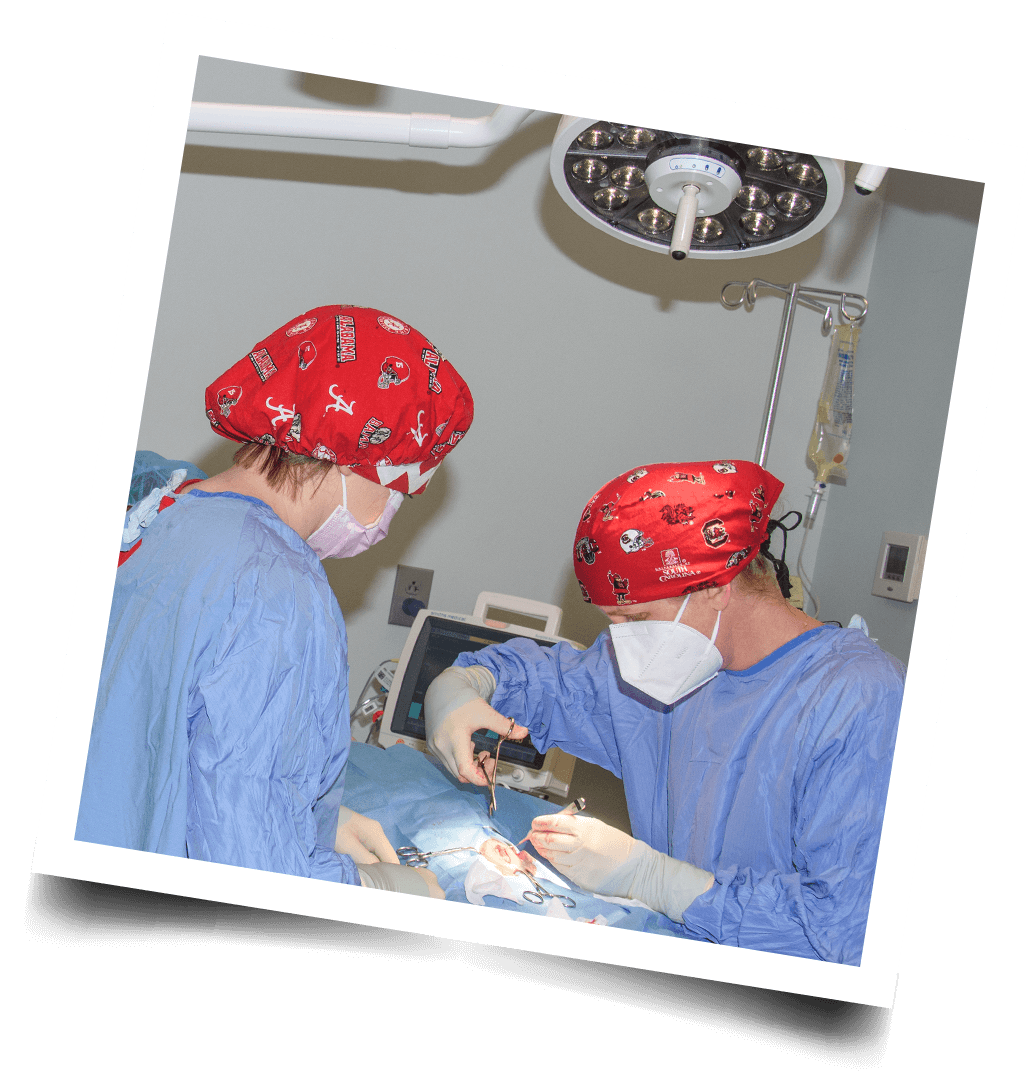Cat and Dog Surgery and Spay/Neuter Surgery in Charleston, SC

Whether it’s a routine spay/neuter or a more complex soft tissue procedure, most pets will require some form of surgery at some point in their lives. Our veterinarians at West Ashley Veterinary Clinic can perform a wide range of dog and cat surgeries to treat medical problems and increase your pet’s quality of life. Our surgical suite is designed to provide your companion with the same standard of care as a human surgical suite. We treat each pet as an individual at our clinic and take every possible precaution to ensure their safety.
Call us today at (843) 571-7095 to schedule your pet’s spay/neuter surgery or request an appointment!
Why We Recommend Spaying & Neutering
If you have a new, intact pet, whether a puppy/kitten or an adult, spay and neuter surgery might be one of your first concerns. Spay and neuter surgeries are important because they can help to reduce cat and dog overpopulation and in turn increase the odds of being adopted for animals currently living in shelters. In addition, dogs and cats that are “fixed” are more likely to live longer, healthier lives. Spay and neuter surgeries can reduce a pet’s risk for male or female reproductive cancers and infections. The surgeries can also reduce or prevent disruptive hormonal behaviors.
What to Expect with Pet Surgery at West Ashley Veterinary Clinic
Below is a general explanation of what you and your pet should expect before, during, and after their surgery.
Before Surgery
As part of our stress-free philosophy, we encourage you to pick up a surgery comfort pack. This pack includes anti-anxiety and anti-nausea medication to be administered before your pet’s admission to our clinic for surgery.
On the day of surgery, we perform a comprehensive physical examination. We may also perform pre-anesthetic blood work and/or other diagnostics as necessary.
During/After Surgery
During surgery, a Licensed Veterinary Technician monitors your pet’s blood pressure, EKG, temperature, carbon dioxide, and oxygen levels from induction to recovery using state-of-the-art equipment and provides warmth with a specialized warm air regulator.
We take pride in applying current and multimodal pain management strategies for your pet’s comfort, and we often use a combination of local pain blocks, anti-inflammatory medications, narcotics, as well as neuropathic and visceral pain blockers both in the hospital and for use at home. Our goal is to ensure a faster return to normal function for your companion. You can learn more about our anesthesia protocols by viewing the Surgery and Anesthetic Procedure form.
Types of Pet Surgeries We Offer
Our veterinarians perform a variety of routine and non-routine surgeries:
- Spays and neuters
- Laceration repair
- Mass removals and biopsies
- Bladder and urinary stone surgeries
- Abdominal exploratory and foreign body removal
- Amputations
- Eye and ear surgeries
